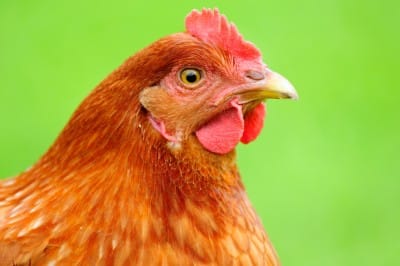159 scientists and 50 farmers released statements today calling for strong action on the long-neglected issue of antibiotic use in animal agriculture. Scientists have been warning for decades about the risks of feeding massive quantities of antibiotics to pigs, cows, chickens, and other animals we eat, and they are again ringing the alarm bells. But the Food and Drug Administration (FDA)—the agency responsible for regulating the use of antibiotics in livestock—has done little to address the looming threat.
Copyright 123RF Stock Photo
The science overwhelmingly supports the conclusion that the use of antibiotics in livestock production poses a risk to human health. As the scientists’ letter states:
Hundreds of scientific research studies and analyses by international scientific bodies support the conclusion that the overuse of critical human drugs in food animal production is linked to human diseases increasingly impervious to antibiotic treatment, putting human lives at unnecessary risk.
(Full disclosure: one of the scientists who signed the statement is my wife, a microbiologist by training. She says the kind of routine, low-dose use of antibiotics that is the norm in the livestock industry—not to treat sick animals but to substitute for better management practices—is exactly what scientists use to foster antibiotic resistant bacteria in a lab for experimental purposes.) Click here and here for bibliographies of relevant studies.
Doctors routinely advise us that antibiotics should only be used to treat bacterial infections, that we should take the proper dose for treating the infection, and that we should always finish our course of antibiotics to avoid encouraging the spread of antibiotic resistant bacteria, but livestock operations routinely break these rules.
There is a remarkable level of agreement on the need to stop the non-therapeutic use of antibiotics on animals, i.e. use of antibiotics on animals that are not sick and don’t need them. Medical groups such as the American Academy of Pediatrics and the American Medical Association, public health groups such as the American Public Health Association, and scientific groups such as the American Society for Microbiology all agree that such use must stop to protect public health.
The scientists are joined by the voices of progressive farmers that daily demonstrate the viability of a more responsible and humane system for producing healthy meat, dairy, and eggs—one that does not rely on the non-therapeutic use of antibiotics. In their own words:
Our operations demonstrate that it is possible to protect public health and offer Americans a steady supply of food. And they show that it is not only possible but actually economically viable to produce meat, dairy products, and eggs that are safe to eat without continually dosing animals with drugs they don’t need.
As is now well known, 80% of all antibiotics sold in the US are for use on livestock, the vast majority to speed up animal growth and to compensate for unsanitary, crowded conditions. This unnecessary use is putting essential medicines at risk, rendering vital antibiotics less effective and increasing the length and severity of illnesses, the incidence of hospitalizations, the use of antibiotics with greater side-effects, and the risk of death from treatment failure.
In the face of these risks and the scientific consensus, the FDA has offered up only voluntary guidelines that leave action up to industry and that continue to give a free pass to the use of antibiotics to prevent disease as a substitute for better management practices. As these scientist and farmer statements remind us yet again, we need much better from the FDA, and we need Congress to keep the FDA on task.
NOTICE: In accordance with Title 17 U.S.C. Section 107, this material is distributed without profit to those who have expressed a prior interest in receiving this information for research and educational purposes.


